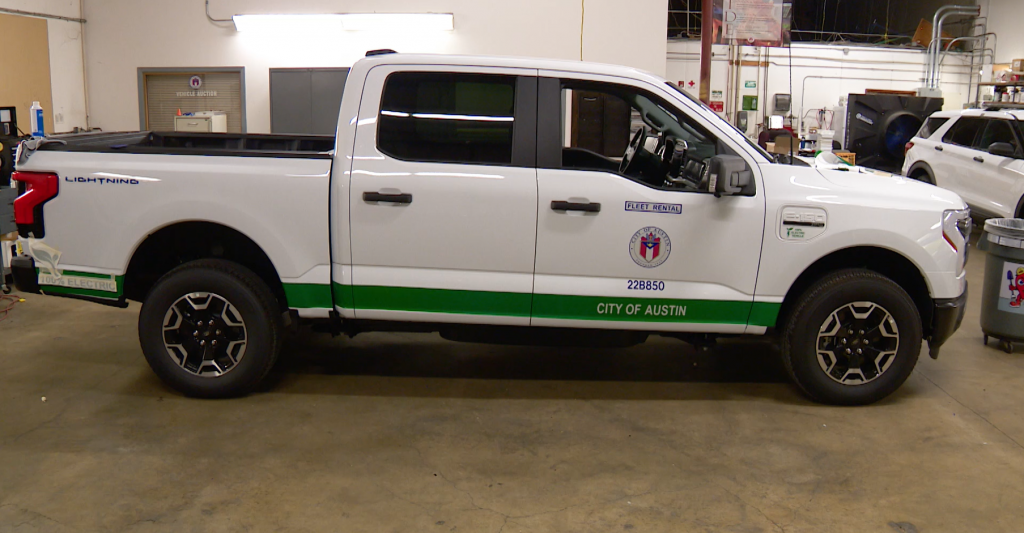Leading the Charge

The City of Austin is working to become carbon neutral by increasing its EV fleet and saving millions of dollars along the way. Today, staff updated the City Council on Austin’s Climate Equity Plan. Right now, 7% of the City’s fleet is on track to be electric by the end of 2022. Part of that goal includes adding 330 electric vehicles to its fleet by the end of this year. Due to higher gas prices, cost savings to date are ahead of initial forecasts predicting savings of $3.5M over 10 years.
The City of Austin’s Fleet Mobility Services department led the shift to electric vehicles for a significant portion of the City’s light duty fleet and built out a supportive charging infrastructure that benefits the entire community.
“Moving our City’s fleet to electric has a multitude of benefits,” said City Manager Spencer Cronk. “Not only are we saving money on fuel and maintenance costs, but we’re also providing public access to charging stations and making a positive impact on the environment by reducing greenhouse gas emissions.”
Austin started adding electric vehicles to its City fleet in 2017, the majority of which consists of sedans and SUVs. This year, new electric trucks were also added, including the Ford F-150 Lightning.
To support the electric transportation strategy, Fleet Mobility Services is partnering with Public Works and Austin Energy to facilitate the construction and installation of charging infrastructure for the City’s electric vehicles at various municipal buildings and parking garages. To date, 137 charging ports have been installed, with 52 more planned for the coming fiscal year.
In addition to the new charging infrastructure to power these City of Austin electric vehicles, Austin has more than 1,300 charging ports to serve EV users. Austin Energy’s Plug-in EVerywhere Driver Program is made possible through partnerships with community station hosts throughout the city and allows drivers unlimited charging access for $4.17 a month.
“Austin’s transportation electrification goals are some of the most aggressive in the country,” said Zach Baumer, the City of Austin’s Climate Program Manager. “The transition to electric is happening rapidly, and we need to keep the focus on equity as this shift occurs.”
To speed up the transition to electric vehicles while increasing equity, Austin Energy has been working on several programs connected to Austin’s Climate Equity Plan. Their EVs for Schools program, which offers EV education to economically disadvantaged schools, went from being offered at four pilot schools to more than 140 in Central Texas. Austin Energy is also leading a collaborative effort with MetroBike, CapMetro, and HACA to increase e-bike access to residents in affordable housing.
Currently, the City is looking at encouraging residents, businesses, and dealerships to leverage new federal tax credits for EVs. It is also looking at continuing and expanding equitable outreach programs related to EVs, marketing its EV Buyer’s Guide, and further increasing the City’s EV fleet.
To see the most up-to-date information on Transportation Electrification as it relates to Austin’s Climate Equity Plan, visit the plan’s implementation dashboard.
